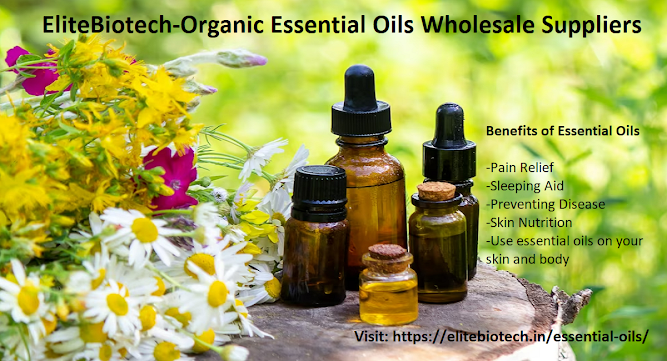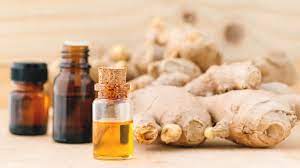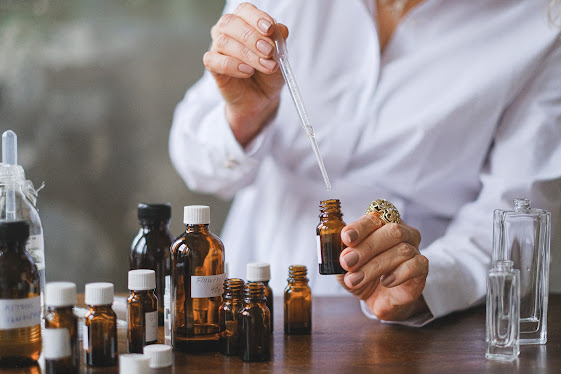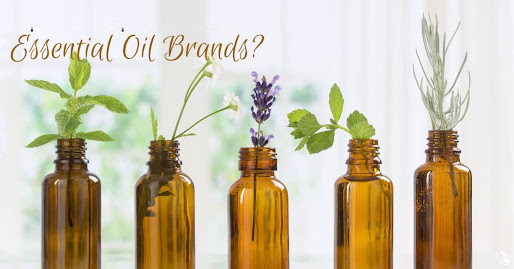How Should Essential Oil Be Stored To Maintain Its Quality?
Proper storage is crucial to maintaining the quality and efficacy of essential oils. These concentrated plant extracts are sensitive to factors such as light, heat, air, and moisture, which can lead to the degradation of their aromatic compounds and therapeutic properties. Here's a comprehensive guide on how to store essential oils to ensure their longevity and effectiveness:
**1. Dark Glass Bottles:
Essential oils should be stored in dark glass bottles, typically amber or cobalt blue. Dark glass helps protect the oils from exposure to light, especially sunlight and artificial light sources. Light can cause photochemical reactions, leading to the breakdown of the aromatic compounds in essential oils. Dark glass bottles act as a shield, preserving the oils' integrity and preventing degradation.
**2. Airtight Seals:
Ensure that the essential oil bottles have airtight seals to prevent the entry of air into the bottle. Oxygen can contribute to oxidation, which accelerates the deterioration of essential oils. Sealed bottles help maintain the freshness of the oils by minimizing their exposure to air. When not in use, promptly close the bottle to limit air contact.
**3. Cool Storage:
Essential oils should be stored in a cool environment, away from direct heat sources. Heat can cause the volatile compounds in organic essential oils to evaporate more quickly, leading to a loss of aroma and therapeutic properties. Ideally, store essential oils in a cool, dark place with a stable temperature. Avoid storing them in areas prone to temperature fluctuations, such as near windows, radiators, or other heat-emitting appliances.
**4. Avoid Refrigeration:
While it's essential to store essential oils in a cool environment, refrigeration is not recommended for most oils. Cold temperatures can cause certain essential oils to solidify or crystallize, affecting their consistency and potentially altering their fragrance. Additionally, refrigeration may introduce moisture when the bottles are taken in and out of the refrigerator, leading to water contamination. Instead, choose a consistently cool, dark storage space.
**5. Keep Away from Sunlight:
Sunlight, especially ultraviolet (UV) rays, can accelerate the degradation of essential oils. Exposure to sunlight can alter the chemical composition of the oils and diminish their therapeutic benefits. Store essential oils in a place where they are shielded from direct sunlight. Dark glass bottles serve as a barrier, but it's best to store them in a dark cupboard or drawer for additional protection.
**6. Use Orifice Reducers and Caps:
Many essential oil bottles come with orifice reducers—small inserts that control the flow of oil when the bottle is tipped. These reducers help minimize exposure to air and prevent accidental spills. Always use the original orifice reducer and cap provided with the essential oil bottle. If an oil is prone to oxidation, consider transferring it to a smaller bottle with a reducer to reduce the air space in the bottle.
**7. Avoid Air Exposure:
Limit the exposure of essential oils to air as much as possible. When using an essential oil, work quickly to prevent unnecessary air exposure. Open the bottle, dispense the required drops, and promptly reseal the bottle. This practice helps maintain the quality of the oil by minimizing oxidation.
**8. Store in Upright Position:
Store essential oil bottles in an upright position to prevent leakage and ensure proper sealing. Essential oils are volatile and can evaporate if the bottle is not properly closed. Keeping the bottles upright helps maintain the integrity of the oil and prevents any potential damage to the bottle's sealing mechanism.
**9. Label Bottles Clearly:
Label each essential oil bottle clearly with its name and date of purchase. This practice helps you keep track of the oils in your collection and ensures that you use them within their recommended shelf life. Different essential oils have varying lifespans, so it's beneficial to monitor their freshness.
**10. Keep Away from Children and Pets:
Store essential oils out of reach of children and pets. Some essential oils can be harmful if ingested or applied undiluted on the skin. Placing the oils in a secure location prevents accidental exposure and ensures the safety of everyone in the household.
**11. Avoid Contamination:
Prevent contamination of essential oils by using clean droppers or pipettes when dispensing the oil. Avoid touching the dropper orifice with your hands or any other surfaces. Contamination can introduce impurities and compromise the quality of the oil.
**12. Rotate Your Stock:
To ensure the freshness of your essential oils, consider rotating your stock regularly. Use older oils first and replenish your collection as needed. This practice helps prevent the oils from sitting unused for an extended period, minimizing the risk of deterioration.
**13. Educate Yourself on Shelf Life:
Different essential oils have varying shelf lives, ranging from a few months to several years. Educate yourself on the typical shelf life of each oil in your collection. Oils high in monoterpenes and oxides, such as citrus oils and eucalyptus, may have a shorter shelf life, while oils with a higher percentage of sesquiterpenes, like patchouli and sandalwood, tend to last longer.
**14. Purchase in Small Quantities:
If you're not a frequent user of a particular essential oil, consider purchasing it in smaller quantities. This reduces the amount of air in the bottle when you open it, minimizing the risk of oxidation. It's also more cost-effective to replace smaller bottles as needed.
Conclusion:
Proper storage is essential to maximize the shelf life and effectiveness of essential oils. By protecting them from light, heat, air, and moisture, you can ensure that your essential oils remain potent and retain their therapeutic properties over time. Implementing these storage practices will help you enjoy the full benefits of your essential oil collection while preserving their aromatic qualities.




Comments
Post a Comment